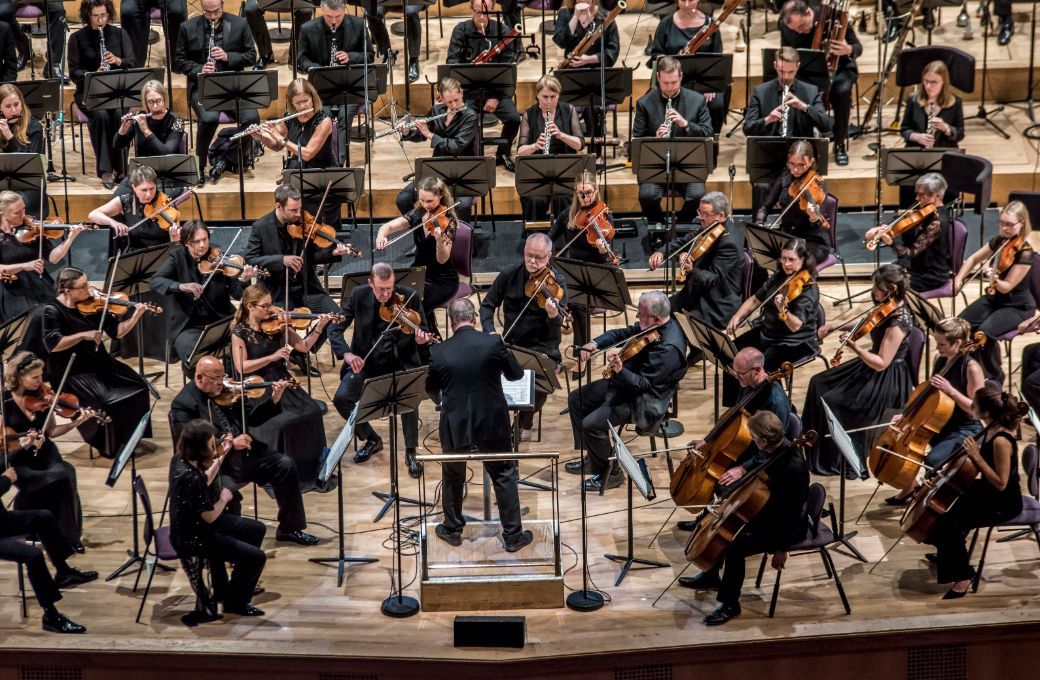What transforms a really good concert into one which is truly great? Clearly, the choice of repertoire matters, but equally important is the unifying vision of players and conductor, providing a compelling narrative for listeners to embrace. And in an ideal world – such as here, in the BBC Philharmonic Orchestra’s concert of music by Beethoven and Shostakovich with its Chief Conductor John Storgårds and impeccable soloist Paul Lewis – both sets of criteria align. The result was an experience that will live long in the memory.

Clearly something special was in the air from the first bars of Beethoven’s Piano Concerto no. 5 in E flat major. Lewis despatched the opening cadenza that emerged from the orchestra’s three sonorous chords in a manner both sure-footed and declamatory; Storgårds and his players responded with martial assurance. There was something almost defiantly old-school about the way the orchestra’s extensive string section (no pared-down period instrument forces here) dug into the downbeats in the orchestral tuttis that signposted the first movement’s architectural structure. Lewis is a remarkable pianist, with more than a trace of his erstwhile mentor Alfred Brendel about his playing. In this performance the pianistic passagework was crystal clear, the phrasing exact without any trace of woodenness, and the interaction of soloist and orchestra exemplary in its flexibility, an exercise in mutual engagement in the service of a cohesive whole.
This is clearly a big-boned concerto – E flat major was, after all, Beethoven’s favourite key for heroism, as his earlier Eroica Symphony attested – but Lewis can do tenderness too, not only but most obviously in the Adagio un poco mosso slow movement. The muted strings provided a hushed backdrop to the piano’s song-like melody, unfolded by Lewis in a way that drew the audience into its sound world mesmerisingly, before breaking the spell gently in the fragmented chords that prefigure the finale’s pounding 6/8 theme. The resulting applause, not just from the audience but the orchestra too, celebrated music-making of both intellectual rigour and creative flair.
Shostakovich’s Fifth Symphony is a work around which a quite extensive mythology has accumulated. “A Soviet artist’s reply to just criticism” may or may not have been the composer’s view of what he was engaged in here, and his need to cloak his music in ambiguity in order to save his skin while still remaining true to his creative vision suggests an absence of easy answers to the question of what the symphony ‘means’. Storgårds and his orchestra nevertheless gave a focused reading that had its own compelling internal logic. The BBC Phil was on superlative form, and while it seems unfair to single out individuals or sections, the horns were commendably secure, both in the snarling rasp of the first movement’s transition to its central section and in the exposed high notes of the desolate Largo. Elsewhere, leader Yuri Torchinsky’s violin solo in the second movement Allegretto shifted deliciously from grace to galumphing coarseness in the work’s most Mahlerian episode.
In the end, though, any reading of the work stands or falls by what the conductor and orchestra do with the finale. Storgårds was superb here, resisting any urge to whip up either the tempo or the emotion as it entered its final stretch. Let the music off its leash and there’s a temptation to provide the audience with a ‘happy ending’, in which ambiguities are resolved. Instead, with a perfect undertone of menace, the music unfolded with an inexorable, almost mechanical inevitability, screeching violins and blaring brass ushering us to the work’s brutal, percussive close.


